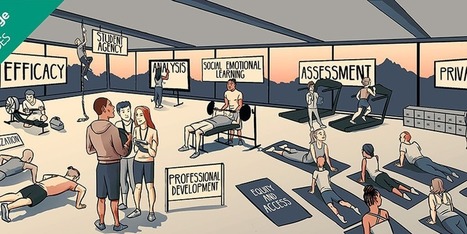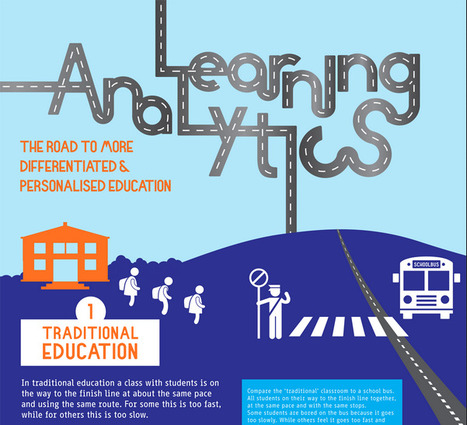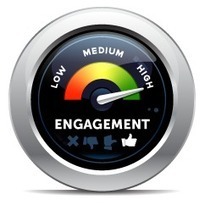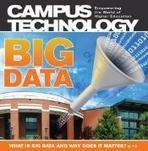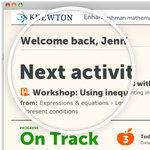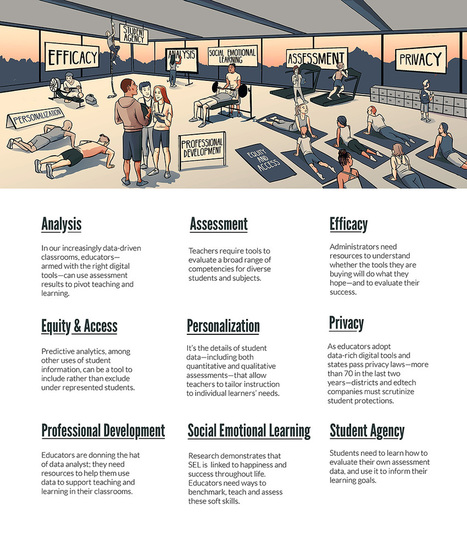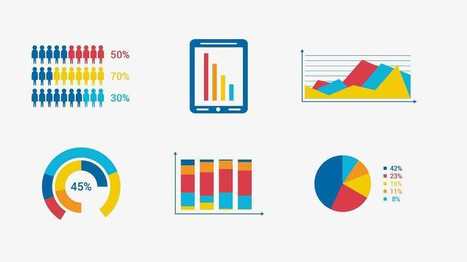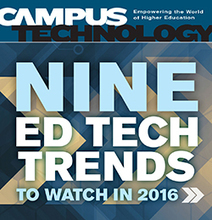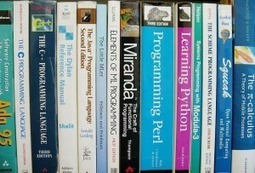Effective visual representations can help higher education bridge silos and unleash the power of data.
Get Started for FREE
Sign up with Facebook Sign up with X
I don't have a Facebook or a X account
 Your new post is loading... Your new post is loading...
 Your new post is loading... Your new post is loading...
Beth Dichter's curator insight,
July 18, 2014 11:05 PM
This detailed infographic provides an in-depth look at learning analytics. It begins by describing traditional education as a school bus, with the expectation that all students will get to "the finish line together." The infographic then turns to personalized learning, where students would work at their pace and in their way to master material. Analytics play a key role in personalized education. Why? If you use a tool that provides you with the ability to measure, collect, analyze and report data about your students you have the opportunity to adapt curriculum. The infographic shares seven areas that may be considered. From here the infographic moves to the learning analytics cycle which moves to four areas: * Descriptive - What has happened? * Diagnostic - Why has it happened? * Predictive - What will happen? * Prescriptive - What should I do? What comes next? The role of the teacher, which is followed by a What's Next section. There is much to learn about learning analytics in this infographic. You may download the complete infographic from the site. 
miguel a. rodriguez's curator insight,
July 19, 2014 5:24 AM
Interesante infografia de google analytics 
John Lemos Forman's curator insight,
July 20, 2014 10:55 PM
Muita expectativa mas ainda poucos resultados concretos ... De qualquer modo, esta se formando uma percepção de que o modelo educacional vai ser fortemente impactado nos próximos anos

Raquel Oliveira's curator insight,
January 27, 2014 10:22 AM
a humanidade clama por ser envolvida nas decisoes, projetos e aprendizagem. Sim, eu sinto esse movimento em diversos setores. Em relação a aprendizagem de adultos, é irreversível ! |
|






